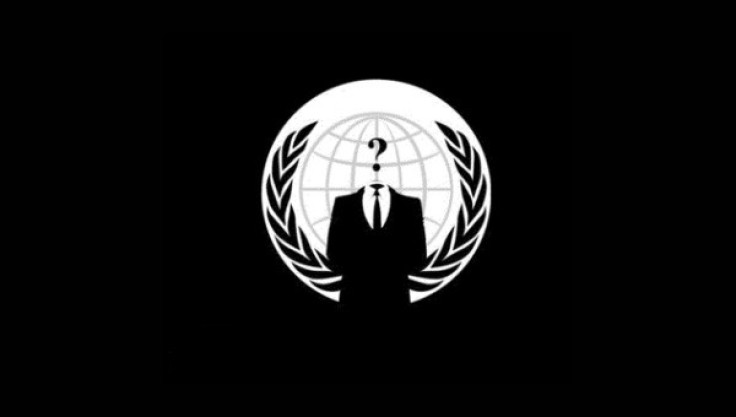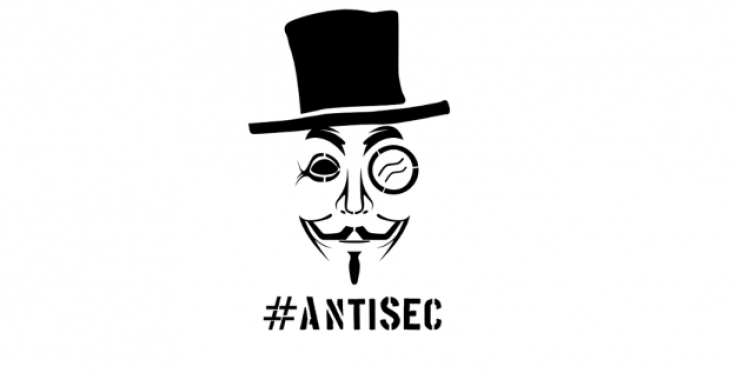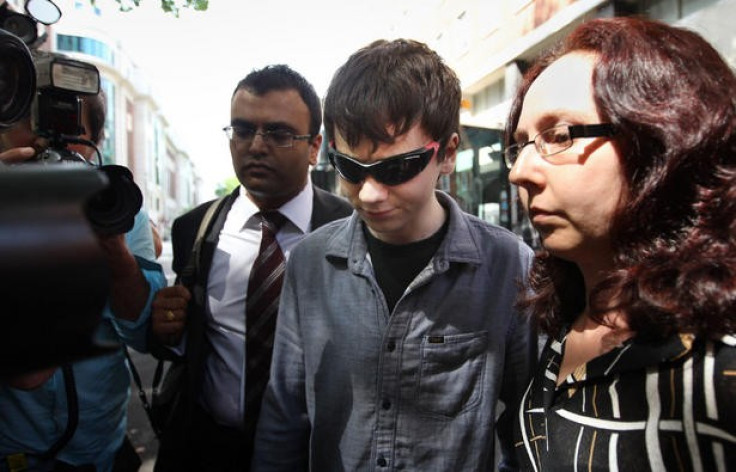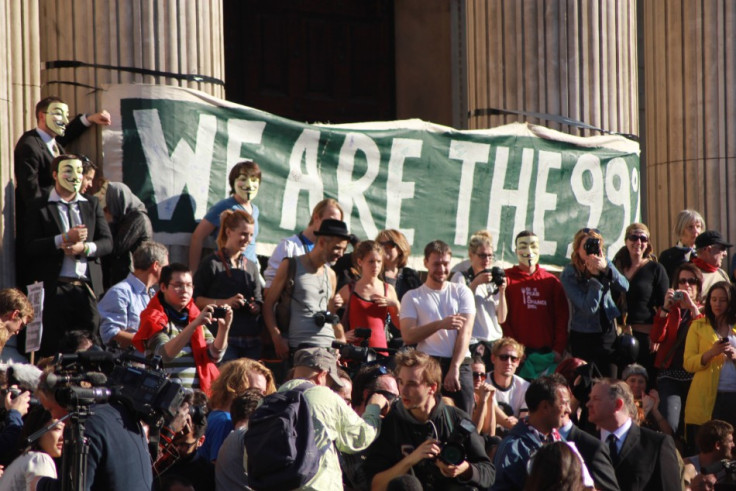2011 The Year of the Hacktivist: When Anonymous Finally Grew-Up

Read through the International Business Times UK's hind-sight look at hacktivism in the year 2011, as it runs through the key points that changed Anonymous from a "hacktivist" collective into a global political movement.
In a year plagued by cyber-crime, the name Anonymous has been at the forefront of nearly every debate, with what was originally taken as little more than a small group of tantruming teenagers, growing into, debatably, one of the most powerful political movements in the world.
Hacktivist Origins
Though the exact details of Anonymous' origin remain as mysterious as its moniker, the collective is believed to be an off-shoot of the older 4Chan online community.
Unlike its brother group, LulzSec, which operated on a more anarchistic ideology, targeting random organisations and companies "just for lulz" -- internet jargon for laughs -- Anonymous portrayed itself as a hacktivist collective, picking its targets for perceived crimes against the world.
Operating off an open IRC channel, the collective allowed any user to join and become a member, or "Anon" as they tend to refer to themselves. Though the information is far from official, Anonymous reportedly picks its targets in a democratic way, with participants in the chat putting forward their chosen target and arguing their case to the other members as to why the proposed target deserves Anonymous' attention.
The collective's early targets were in-turn fairly fragmented, with there being little correlation between each victim or their crimes. Two of the only recurring targets of the collective's wrath was the Turkish government, which Anonymous targeted on numerous occasions with distributed denial of service attacks -- a form of cyber attack that overloads a network with requests, causing it to eventually crash -- and the Church of Scientology.
The attacks on the Turkish were reportedly motivated by the government's plans to instigate a set of new laws allowing it to censor what its citizens could look at online. The campaign continued well into August and led to the arrest of several alleged members, a significant proportion of which were later revealed to be minors.
Operation AntiSec

A key moment for Anonymous came mid-August when it and LulzSec announced Operation Anti-Security (AntiSec).
Though Anonymous had released several previous statements regarding its motivation for specific attacks, Operation Anti-Security was a key period in that it showed the collective rally under one banner to "declare war" on the world's governments.
"Welcome to Operation Anti-Security (#AntiSec) - we encourage any vessel, large or small, to open fire on any government or agency that crosses their path. We fully endorse the flaunting of the word "AntiSec" on any government website defacement or physical graffiti art.
"We encourage you to spread the word of AntiSec far and wide, for it will be remembered. To increase efforts, we are now teaming up with the Anonymous collective and all affiliated battleships," read it and LulzSec's statement.
"Together we can defend ourselves so that our privacy is not overrun by profiteering gluttons. Your hat can be white, gray or black, your skin and race are not important. If you're aware of the corruption, expose it now, in the name of Anti-Security."
Following the "operation's" announcement, Anonymous went on to mount several high-profile assaults on numerous targets including, the Italian Police, the FBI, the UK Serious Organised Crime Agency and even NATO -- which still lists Anonymous as a terrorist organisation.
LulzSec's Demise

Another key moment came soon after AntiSec's announcement when police arrested a number of alleged Anonymous and LulzSec members.
Beginning with alleged LulzSec members Jake Davis and Ryan Cleary's arrest, following AntiSec's initial attacks the world's authorities pulled together in a coordinated search for Anonymous members. The hunt led to arrests around the world, with police detaining and questioning potential Anons in America, the UK, Spain, the Netherlands and Italy.
While Anonymous responded to the arrests with a number of "revenge" attacks -- including its OpPayPal, which is believed to have caused thousands of customers to close their PayPal accounts -- the arrests are believed to have crippled LulzSec, which announced it was ceasing activity in back in August. Though the group later re-emerged to protest the phone-hacking scandal surrounding Rupert Murdoch, since the announcement LulzSec has remained fairly inactive.
The arrest of several American and western "members," is taken as a key moment in Anonymous history, with authorities taking it as a demonstration that Anons are not above the law.
A Move to the Mainstream

Though Anonymous remained defiant following the arrest of its alleged members, the authorities' "witch hunt" did lead to a marked change in Anonymous' behaviour.
The western sections of the collective re-focused their efforts, decreasing their hacking activity to support Adbuster's Occupy movement. Started in September with the opening Occupy Wall Street campaign, the Occupy movement has since spread to cities across the world, seeing citizens pitch tents in public squares and mount sit-in-protests against the world's current political and economic systems.
In all the campaigns Anonymous has openly voiced its support for the movement, publicising its live video feeds and reporting any incidents of police violence against protesters.
A Hacktivist Centre
Though the collective has continued its hacking activities to a certain degree, targeting a Finnish Neo-Nazi group and online paedophile ring, the collective focus appears to have shifted away from its hacktivist roots.
Outside of the South American and Middle Eastern cells, since the arrests of several alleged western Anonymous members the group does seem to have re-focused becoming more akin to an activist rather than hacktivist group.
The change in focus has since been viewed by some analysts as an evolution within the group indicative of its growth. As the collective's profile has grown several individuals with no hacker knowledge or desire to enact cyber-attacks have begun to define themselves as Anons due to their belief in the symbolic, anti-authoritarian stance Anonymous holds.
The new members have in-turn begun using the Anonymous moniker as a means to portray discontent at the current global political and economic systems rather than an alias under which to enact cyber-attacks.
"There is a wing of Anonymous who are older and looking for more Lawful ways of making our voices heard, but if we are not heard, we'll just step back and let the skiddies do their thing," commented one individual claiming to be an Anon to the International Business Times UK.
With several of the Occupy movements still going, it seems likely that the western members of Anonymous will remain with the protesters. Whether this shift will last into the New Year and past the end -- when ever that will be -- of the Occupy movement, remains nebulous, with it largely depending on the consensus of the members formulating the collective. But for at least the moment, for better or for worse, the year of the hacktivist has ended with its chief founder close to becoming a valid political movement.
© Copyright IBTimes 2024. All rights reserved.





